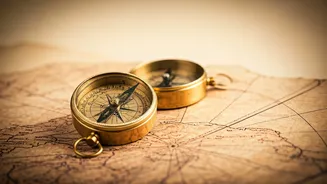Shared Historical Roots
The relationship between Delhi and Kabul is deeply rooted in history, with cultural exchanges and interactions spanning centuries. These connections, predating
modern state boundaries, laid the foundation for a shared cultural heritage. Trade routes, religious influences, and the movement of people fostered a sense of interconnectedness between the two regions. The shared experiences of the past have left a lasting impact, shaping the perceptions and expectations of both nations. Throughout history, the people of Delhi and Kabul have encountered each other, traded together, and influenced each other's cultures. This shared past contributes to a unique understanding and empathy between the two cities. The significance of their historical ties is undeniable; they serve as a cornerstone of the relationship and contribute to its complexity in the modern era.
Geopolitical Realities
The geopolitical landscape has significantly influenced the Delhi-Kabul relationship. Regional dynamics, including the presence and influence of neighboring countries, have added layers of complexity to their interactions. The actions and policies of external powers have, at times, created challenges and, at other times, opened opportunities. India's strategic interests in Afghanistan, often relating to regional stability and connectivity, play a central role in its foreign policy. Similarly, Afghanistan's position as a landlocked nation impacts its relations with India, especially regarding trade and access to markets. The evolution of the geopolitical context requires both nations to adapt and navigate challenges. The impact of terrorism and regional conflicts on their relationship has been notable. Ongoing diplomacy and strategic collaborations are necessary to safeguard their shared interests and foster a stable environment for collaboration.
Cultural and Economic Links
Cultural and economic ties have consistently been important aspects of the Delhi-Kabul relationship. Cultural exchanges, including artistic and educational programs, contribute to mutual understanding and strengthen bonds. The economic interactions, such as trade and investment, have benefited both countries. India has invested in Afghanistan's development, supporting infrastructure projects and capacity building initiatives. These initiatives promote economic growth, creating job opportunities and improving living standards. Educational collaborations, including scholarships and student exchanges, deepen the cultural ties, cultivating people-to-people connections. Through various avenues of economic and cultural exchange, both nations reinforce their shared values and promote closer collaboration. These links are critical for long-term sustainability and provide mutual benefits. They enhance the relationship between Delhi and Kabul, enabling them to tackle the complex geopolitical landscape together.
Challenges and Opportunities
The Delhi-Kabul relationship faces various challenges, from political instability to security threats and the influence of external actors. Despite these challenges, there are also opportunities for increased collaboration. The future of their relationship rests on their ability to overcome obstacles, navigate geopolitical complexities, and capitalize on opportunities. Strengthening their ties through diplomatic efforts, strategic partnerships, and economic initiatives can build a stable foundation. Both nations have shared interests in regional stability, counter-terrorism, and economic development. By working together, they can improve their partnership and create an environment that will benefit both sides. The opportunities include greater economic cooperation, cultural exchange, and strategic alignment, which could bolster their shared ambitions. The ability to manage these difficulties while maximizing potential is crucial for long-term success.
The Road Ahead
Looking forward, the Delhi-Kabul relationship needs a strategic vision. This calls for enhanced diplomatic efforts, more solid economic and cultural cooperation, and addressing common challenges. Regular dialogues, high-level meetings, and a strong commitment to their shared principles will be necessary to achieve their strategic goals. Strategic partnerships and collaborative projects can contribute to the growth and development of both nations. By focusing on areas of mutual interest and by consistently working together to achieve their goals, both countries can build a relationship that will strengthen their partnership. The future of the Delhi-Kabul relationship is not solely determined by geopolitical events; it depends on the choices made by the leadership of both nations and the people to promote peace and prosperity in their regions.





















